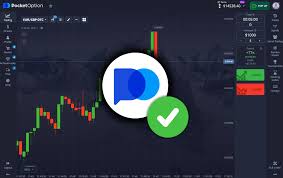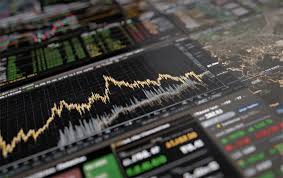
What is the Minimum Deposit?
The concept of a minimum deposit varies widely among different trading platforms. Generally, it refers to the smallest amount of money that a trader must deposit in order to open an account and start trading. This amount is crucial as it can dictate the accessibility of the trading platform for novice traders. Understanding what is the minimum deposit for pocket option withdrawal Pocket Option requirements is also important for managing your funds effectively.
Why Minimum Deposits Matter
Minimum deposits serve multiple purposes in the trading world. They help ensure that a trader is committed to their trading activity, as a financial investment usually correlates with a serious approach to trading. Furthermore, this practice helps brokers manage their operations more efficiently. By setting a minimum deposit, brokers can sustain their business model, ensure liquidity, and offer better services to their clients.
Typical Minimum Deposit Amounts
The minimum deposit amount can significantly vary based on the trading platform you choose. For example:
- Many Forex brokers have a minimum deposit ranging from $50 to $500.
- For stock trading platforms, the minimum deposit can be higher, often starting at $1,000 or more.
- Some cryptocurrency exchanges allow traders to start with as little as $10, appealing to those new to trading.
- Social trading platforms may have varied minimums depending on the strategies in use.
Factors Influencing Minimum Deposit Requirements
Several factors contribute to the minimum deposit requirements on various trading platforms:

- Type of Trading: Different trading types, such as forex, stocks, or cryptocurrencies, will have diverse minimum deposit limits based on market volatility and liquidity.
- Brokerage Strategy: Some brokerages aim to attract novice traders and therefore set lower minimums, while others cater to institutional clients, requiring higher deposits.
- Regulatory Requirements: In regulated markets, brokers might face stricter guidelines dictating minimum deposits to provide protection against financial risks.
- Account Types: Different account types (like standard, premium, and VIP accounts) often come with varying minimum deposit obligations.
Implications of Minimum Deposits on Trading Strategies
The minimum deposit not only determines how much money you need to start trading but also affects your overall strategy:
- Leverage Options: Higher deposit accounts might provide better leverage options, allowing traders to control larger positions with smaller capital.
- Access to Resources: A higher minimum deposit often grants access to superior trading resources, including advanced analytics, research tools, and personalized support.
- Risk Management: The amount of initial capital can influence your risk management approach—higher deposits may enable greater risk-taking, while smaller deposits necessitate more conservative strategies.
Strategies for Beginners with Minimum Deposits
For beginners, navigating through the landscape of trading with minimum deposits can be daunting. Here are some effective strategies:
- Start Small: Use platforms with low minimum deposits to get a feel for trading without risking large sums of money.
- Practice on Demo Accounts: Many brokers offer demo accounts that allow you to trade with virtual money to build confidence before committing real capital.
- Learn and Adapt: Take time to study market trends, strategies, and trading fundamentals before increasing your actual investment.
- Stay Informed: Stay updated on market conditions and the latest news that can impact your trading decisions.
Conclusion
Understanding what is the minimum deposit and its implications is essential for any aspiring trader. It not only determines the entry point into the trading world but also impacts your strategy, resources, and overall trading experience. By choosing the right platform and establishing a solid foundation with a manageable deposit, you maximize your chances of success in the trading arena.
